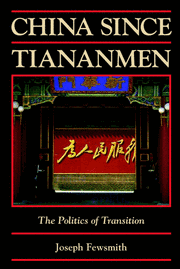Book contents
- Frontmatter
- Contents
- Acknowledgments
- Chronology
- Schematic Overview of Chinese Political Spectrum
- List of Abbreviations and Tables
- Introduction: State and Intellectuals at the Turn of the Century
- Part I Line Struggle Revisited: The Attack on Deng's Reform Program
- Part II Redefining Reform: The Search for a New Way
- Part III Elite Politics and Popular Nationalism
- Conclusion
- Epilogue
- Notes
- Bibliography
- Index
Epilogue
Published online by Cambridge University Press: 05 September 2012
- Frontmatter
- Contents
- Acknowledgments
- Chronology
- Schematic Overview of Chinese Political Spectrum
- List of Abbreviations and Tables
- Introduction: State and Intellectuals at the Turn of the Century
- Part I Line Struggle Revisited: The Attack on Deng's Reform Program
- Part II Redefining Reform: The Search for a New Way
- Part III Elite Politics and Popular Nationalism
- Conclusion
- Epilogue
- Notes
- Bibliography
- Index
Summary
In the decade following the Tiananmen crisis, reform in China continued, however unevenly, to move forward. The inability of conservatives to fashion a viable economic policy during this period meant that the political leadership was forced not only to turn once again to economic reform but also to accelerate its reforms, allowing the private economy to expand rapidly, encouraging state-owned enterprises to issue shares, and attracting unprecedented levels of foreign investment. Deng Xiaoping's trip to the south in 1992 and the passing from the scene of such Party elders as the conservative economic policy specialist Chen Yun and Jiang Zemin's primary political supporter Li Xiannian (also a conservative) provided new room for economic reformers, while the mounting difficulties of the state-owned sector (made more pressing by the prospect of China's entry into the World Trade Organization) increased pressures to take increasingly bold steps in reforming the economy. The result was that the government largely ignored the rising tide of social criticism from the New Left that pointed to growing inter- and intraregional inequalities and that questioned China's commitment to globalization. Even as the government benefited to some extent from increased nationalist sentiment, it ignored calls to say “no” to the United States and to the global economy. In the area of political reform, growing commercialization accelerated the state's retreat from society, while reformers began to redefine the role of the state and to experiment with village elections (which began in 1988 and have now spread, however imperfectly, to most of China's 900,000 villages).
- Type
- Chapter
- Information
- China since TiananmenThe Politics of Transition, pp. 233 - 236Publisher: Cambridge University PressPrint publication year: 2001



